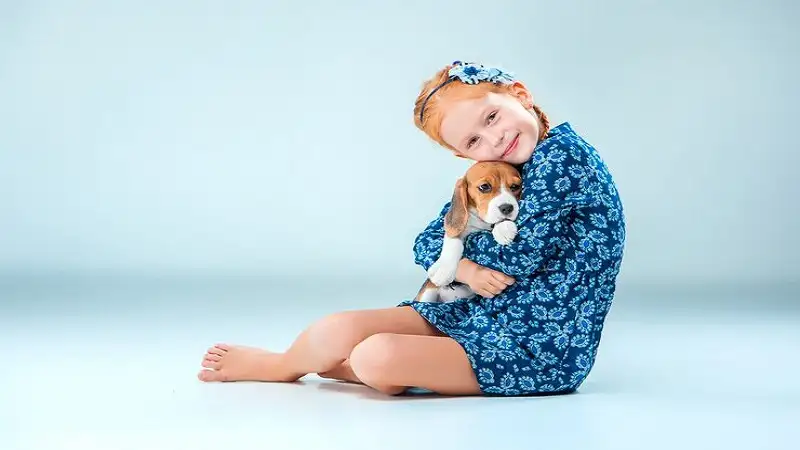The phrase baby:czziykpdt-q= dog is an intriguing blend of words that evokes the idea of an infant dog—a puppy. Whether you call them pups, baby dogs, or fur babies, they symbolize innocence, playfulness, and unconditional love. Puppies have captivated people for centuries with their charm and endearing behavior. The joy of welcoming a new baby dog into your home is like adding sunshine to your life—it brightens even the dullest days.
Throughout this article, we’ll explore the wonders of baby dogs, including their characteristics, training, and care. From understanding what makes them unique to addressing the challenges of raising one, this article will be your ultimate guide to enjoying life with your baby dog. If you’re planning to adopt a puppy, or simply want to know more about these adorable creatures, keep reading—you’re in for a treat!
What Does baby= dog Mean?
Baby:czziykpdt-q= dog is likely a quirky term used to express affection for young dogs, commonly referred to as puppies. The phrase hints at how people see puppies as more than just pets—they’re cherished members of the family, often treated like actual babies.
It also reflects how modern pet parents increasingly use playful terms to show their love for their animals. Whether it’s dressing them in cute outfits or referring to them as “baby,” this trend demonstrates how human-animal bonds have evolved.
The Emotional Bond with Baby Dogs
Puppies can melt even the toughest hearts. This emotional connection goes beyond their adorable appearance—there’s a deep psychological element behind it. Studies show that petting or playing with a baby dog can reduce stress, anxiety, and loneliness. Puppies aren’t just companions; they’re emotional anchors that keep us grounded.
The Science Behind Puppy Love
When interacting with a baby dog, your body releases oxytocin, often called the “love hormone.” This same hormone plays a role in parent-child bonding, which explains why many dog owners treat their puppies like children. Spending time with a baby dog boosts serotonin levels, improves mood, and strengthens the emotional connection between owner and pet.
Characteristics of Baby Dogs
Baby dogs are known for their charming features and playful personalities. Their tiny paws, big curious eyes, soft fur, and clumsy movements make them irresistibly cute. Each puppy has its personality, but most share some common characteristics during their early stages of life.
Physical Traits
- Soft fur: Puppies typically have softer, fluffier coats compared to adult dogs.
- Big paws: Puppies often have larger paws in proportion to their bodies, a sign they’ll grow bigger.
- Teething: Like human babies, baby dogs go through a teething phase where they chew on objects for relief.
Behavioral Tendencies
- Playfulness: Puppies are always curious and love exploring their surroundings.
- Chewing: They’ll nibble on everything, from shoes to furniture, as part of their development.
- Energy bursts: Baby dogs often alternate between short bursts of energy and long naps.
Common Breeds Known for Adorable Puppies
While all puppies are lovable, certain breeds stand out for their adorable baby dog phase. Here are a few favorites:
- Golden Retrievers: Known for their friendly nature, these puppies are playful and loving.
- French Bulldogs: With their squishy faces and small stature, Frenchie puppies are always crowd-pleasers.
- Corgis: Famous for their short legs and big personalities, Corgis are full of playful energy as puppies.
- Labrador Retrievers: These puppies are known for their intelligence and affectionate behavior, making them perfect companions.
Training a Baby Dog: What to Expect
Training a baby dog from an early age is crucial to ensure they grow into well-behaved adult dogs. The key is consistency, patience, and positive reinforcement. Puppy training also provides mental stimulation and strengthens the bond between you and your pet.
Housebreaking Tips for a Baby Dog
Housebreaking is one of the first challenges new puppy owners face.
- Create a Schedule: Take your puppy outside at regular intervals, especially after eating or waking up.
- Reward Good Behavior: Use treats and praise when your puppy does its business outside.
- Supervise Closely: Keep an eye on your puppy to avoid accidents indoors.
Teaching Basic Commands
Teaching simple commands such as “sit,” “stay,” and “come” can start as early as eight weeks. Use treats and praise to encourage learning. Puppies thrive on positive reinforcement, so keep training sessions fun and brief to hold their attention.
Baby Dog Care Essentials
Raising a baby dog requires a variety of supplies to ensure they stay healthy and happy. Some essentials include:
- Food and water bowls
- A comfortable dog bed
- Chew toys for teething
- A collar with ID tags
- Leash and harness for walks
Selecting the Right Dog Food for a Baby Dog
Puppies require a balanced diet rich in proteins, fats, vitamins, and minerals to support their rapid growth. Look for puppy-specific food formulas, as adult dog food may not meet their nutritional needs. Some puppies may prefer wet food over dry kibble, so it’s essential to monitor what works best for your dog.
Veterinary Care and Vaccinations
Regular vet check-ups are critical in the first year of a puppy’s life. Vaccinations protect against common diseases such as distemper, parvovirus, and rabies. Your vet will also guide you on flea and worm prevention schedules to keep your puppy healthy.
Socializing Your Baby Dog with Other Pets

Socialization is an important aspect of raising a well-rounded dog. Expose your puppy to various environments, people, and other animals early on to prevent fear or aggression later in life.
- Start Slowly: Introduce your baby dog to other pets gradually to avoid overwhelming them.
- Supervise Playtime: Monitor interactions with older pets to ensure safe and positive play.
- Reward Friendly Behavior: Use treats and praise when your puppy interacts positively with other animals.
Fun Activities to Do with Baby Dogs
Engaging your puppy in fun activities strengthens your bond and provides much-needed exercise. Some exciting games and activities include:
- Fetch: Teach your puppy to retrieve toys or balls.
- Tug-of-war: A fun way to engage your puppy’s natural instincts.
- Obstacle courses: Create mini agility courses to challenge your puppy physically and mentally.
Playtime not only provides physical activity but also helps burn off excess energy, reducing destructive behavior indoors.
Challenges of Raising a Baby Dog
While having a baby dog is rewarding, it comes with challenges. Puppies are prone to crying at night, chewing on furniture, and having accidents. However, these challenges are temporary and can be managed with patience and consistency.
- Nighttime Crying: Consider using a comforting toy or blanket to help your puppy sleep.
- Chewing Issues: Provide plenty of chew toys to redirect destructive chewing.
- Training Setbacks: Stay consistent with training, even if progress seems slow.
Conclusion
Raising a baby:czziykpdt-q= dog is a heartwarming journey filled with joy, challenges, and precious moments. From their playful antics to the deep emotional connection they offer, baby dogs truly enrich our lives. With proper care, training, and patience, your puppy will grow into a loyal and loving companion. The bond you build during this phase will last a lifetime, making all the sleepless nights and chewed shoes worth it.
If you’ve been thinking about adopting a baby:czziykpdt-q= dog, now is the perfect time to start! Embrace the adventure and enjoy every moment with your furry little friend.
FAQs
1.What’s the best age to adopt a baby dog?
The ideal time to adopt a baby dog is between 8-12 weeks when the puppy is weaned and ready to socialize.
2.How often should I feed a baby dog?
Puppies require 3-4 meals a day to support their rapid growth.
3.Can an older dog be trained like a baby dog?
Yes! Older dogs can learn with patience, though it may take longer than training a puppy.
4.What should I do if my baby dog keeps crying?
Provide comfort with a toy or blanket, and ensure the puppy is fed and has gone to the bathroom.
5.How long does the baby phase last in dogs?
Most dogs mature around 1-2 years, though smaller breeds may retain playful puppy-like behavior longer.
Read More insiderdod.
